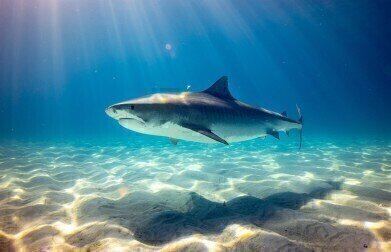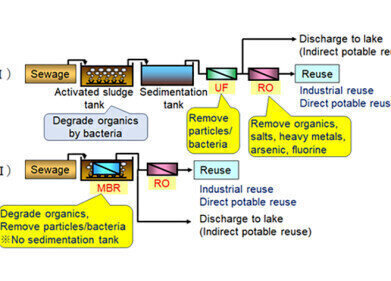Water/Wastewater
A Shark’s Eye View of Pollution
Mar 04 2015
As the world develops a growing concern for pollution, the spotlight has been largely focused on air quality, soil degradation and other above ground effects. But what about the creatures that dwell in our oceans? Our oceans cover a huge 71% of the earth’s surface, with their health and the health of their inhabitants playing a critical role in the world’s ecosystem.
With an increasing number of sharks and other sea creatures at risk due to pollution, scientists have developed an innovative new way of gaining an enhanced understanding of the threats they face. They light-heartedly refer to this as a ‘shark’s eye view’ however the data they’re gathering has been offering some pretty serious insight.
Hawaii’s sharks make for convenient case studies
The studies are currently being carried out at a University of Hawaii research site located on idyllic Coconut Island. The landmass is located just minutes away from Oahu and is brimming with native sharks. Current species under surveillance include tiger sharks, sandbar sharks, blacktip sharks and other predators. Some are observed in the wild while others are restricted to a sheltered bay to make analysis easier. According to researcher Carl Meyer, the captive animals are used to help scientists determine when the sharks are eating and how much they consume.
The behaviour of wild sharks is also being closely monitored, with scientists concealing sensing pellets in their food which actively monitor digestion. Some of the sharks are also fitted with radio-equipped electronic fin tags which track activity as well as cameras which offer a rare ‘shark’s eye’ glimpse of day-to-day movements. “When we recovered the camera we saw that the shark had spent the day in a large aggregation of sharks, not just sandbar sharks but also blacktip sharks and many, many scalloped hammerhead sharks,” reveals Meyer.
Man eaters or eco-system stabilisers?
While sharks may have earned themselves a bit of a reputation as ferocious man eaters Meyer stresses that they’re actually extremely important predators that help balance marine eco-systems. When their environments are jeopardised by pollution, sharks suffer which has a direct impact on marine life as a whole. "Never before in the natural history of the world have we seen a species become so dominant and so able to alter the natural environment,” explains Meyer.
As their environments become increasingly affected by ground level pollution Meyer and his team maintain that it’s critical that studies be carried out regarding how it impacts their natural behaviour, eating patterns and population. The data can then be used to help stabilise shark populations and minimise the environmental impact of above ground pollution.
For more information about ocean pollution, take a look at how much plastic is in our oceans, or find out about the Great Pacific garbage patch.
Further reading
The researchers on these studies presented at the Ocean Sciences Meeting at the Hawaii Convention Center in Honolulu on February 23-28, 2014. For more information, please visit: http://ilmt.co/PL/q3jq.
Events
May 05 2024 Seville, Spain
May 13 2024 Munich, Germany
May 23 2024 Beijing, China
May 23 2024 Beijing, China
Jun 10 2024 Algiers, Algeria













